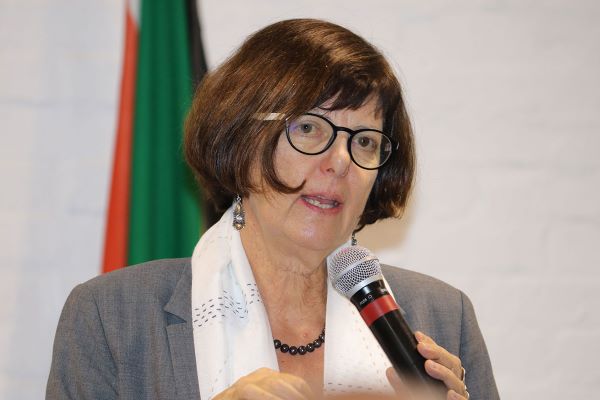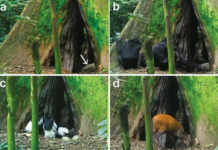South Africa has welcomed the release this week of the Intergovernmental Panel on Climate Change (IPCC)’s Summary for Policy Makers and a longer synthesis report of the Sixth Assessment Cycle.
“The report, released yesterday (Tuesday), brings together the work of leading global scientists over the past six years and clearly shows that more than a century of burning fossil fuels and unsustainable energy and land use worldwide, but in particular in developed countries, has led to global warming of 1.1°C since the start of the industrial revolution,” Minister of Forestry, Fisheries and the Environment Barbara Creecy, said.
Global warming has resulted in more frequent and more intense extreme weather events, with devastating impacts on people and nature in every region of the world.
A recent such example is cyclone Freddy that killed hundreds of people in Malawi, Mozambique, South Africa and Zimbabwe, reminding us that despite some progress to reduce climate risks, we remain ill-prepared for the existential threat posed by climate change.
The IPCC finds that with every increment of warming, the risks, impacts and related losses and damages escalate. When these risks combine with other adverse events, such as pollution and loss of biological diversity, they cascade across sectors and regions and become increasingly difficult to manage. Nothing less than an emergency response will suffice.
“It is therefore important, particularly in this decade, to accelerate efforts to adapt to the reality of a rapidly changing climate and to close the existing adaptation gap,” said Creecy.
However, as pointed out by this IPCC report, the options open to us to adapt are becoming more constrained and less effective with every increment of warming. The IPCC indicates that climate resilient development will become progressively more challenging particularly beyond 1.5°C.
The minister said without urgent, effective, and equitable action to reduce emissions and adapt, climate change increasingly threatens ecosystems, biodiversity, and the livelihoods and wellbeing of current and future generations.
This tells us that both accelerated adaptation efforts and deep, rapid and sustained greenhouse gas emissions reductions in all sectors are required this decade. Unless the international community acts with urgency to reduce emissions, we will not succeed in keeping warming to under 1.5°C and greater impacts and loss and damage will follow.
The scientists tell us that global emissions should already be decreasing and be cut by almost half by 2030. Ultimately, the only way to stabilize warming is to reach net zero CO2 emissions. To limit warming to 1.5°C would require net zero CO2 in the early 2050s, followed by net negative CO2 emissions in the decades thereafter.
“South Africa through its Nationally Determined Contribution and the Just Transition Framework is committed to doing its fair share to contribute to limiting global warming to 1.5 degrees and reaching net zero CO2 emissions by 2050,” the minister said.
South Africa’s national adaptation response strategy is aligned with measures that are identified by the IPCC as effective, such as, promoting on-farm water management and storage, soil moisture conservation and ecosystem-based adaptation such as urban greening, restoration of wetlands and upstream forest ecosystems that have been effective in reducing flood risks and urban heat.
Through our targeted local government support programme, we aim to demonstrate that government actions at local, regional and national level, together with civil society and the private sector, play a crucial role in shifting our development pathway.
As with all other countries, we need an ‘all of economy-, all of society’ response to the climate emergency. The means to shift from a high to a low emissions economy, from incremental to transformative adaptation and climate resilience —all while building an inclusive, employment-intensive economy.
Through the Just Energy Transition Investment Plan (JET-IP), South Africa has identified measures in the electricity, transport and hydrogen sectors and value chains to contribute to decarbonisation of our economy. It is not just an energy transition plan, but a just one – and this puts workers and communities at the centre of defining their future in a low carbon economy.
The JETP-IP will require over R1.5 trillion to be fully implemented.
We have challenged our partners and multilateral development banks to increase finance for climate investments. This is important to achieve global climate goals and our view is that there is sufficient global capital to close the gaps.
The IPCC indicates that these finance gaps and opportunities are greatest in developing economies. A rapid scaling up of finance flows from global capital markets, and supporting public funding from developed economies for enhanced mitigation and accelerated adaptation, can act as a catalyst for accelerating the global shift to sustainable development.
More importantly, the IPCC indicates that grant-based public financing is crucial to accelerate adaptation activity, which is severely underfunded. The greatest gains in wellbeing can be achieved by prioritizing finance to reduce climate risk for the most vulnerable regions (especially in sub-Saharan Africa), and for the most vulnerable, low-income, and marginalized communities, including people living in informal settlements.
Mitigation faces a different challenge: leveraging private finance through public financing by reducing some of the risks inherent in up-scaling mitigation, especially in newer sectors, and in developing regions, including those facing debt and public financing macroeconomic constraints.
Creecy also paid tribute to the South African draft team in the sixth assessment cycle.
“In particular, I thank Professor Debra Roberts, who is the South African candidate for the chairpersonship of the IPCC during its sixth assessment cycle. Under Prof Roberts’ leadership as the current co-chair of working group II of the IPCC, we had more African authors contributing to the IPCC than in any other assessment cycle to date,” Creecy said.









